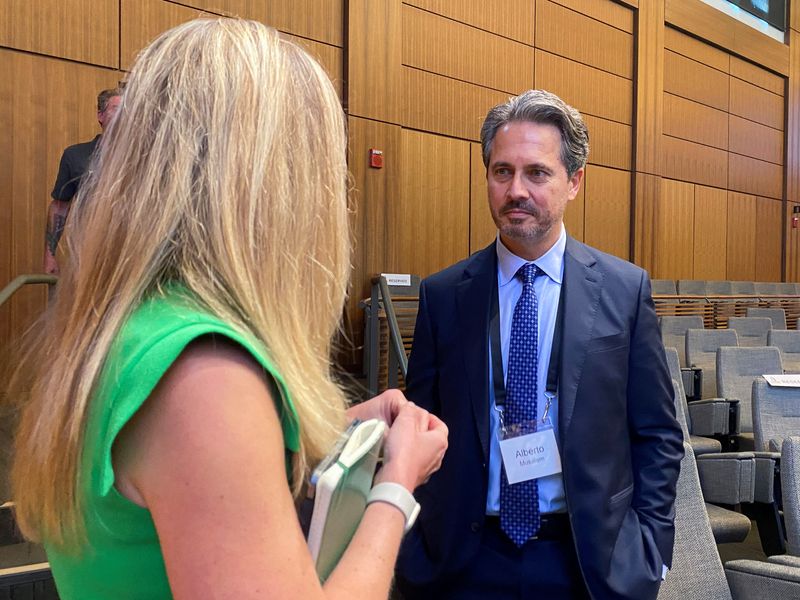By Michael S. Derby
NEW YORK (Reuters) – St. Louis Federal Reserve President Alberto Musalem said on Wednesday he expects the U.S. central bank will be able to continue to cut interest rates but warned the pace of future actions has grown less clear.
With inflation likely to continue to ebb to the Fed’s 2% target, “additional easing of moderately restrictive policy toward neutral will be appropriate over time,” Musalem said in the text of a speech prepared for delivery before a Bloomberg monetary policy conference.
“Along this baseline path, it seems important to maintain policy optionality, and the time may be approaching to consider slowing the pace of interest rate reductions, or pausing, to carefully assess the current economic environment, incoming information and evolving outlook,” he said.
Financial markets expect the Fed to cut its policy rate by a quarter of a percentage point from the current 4.50%-4.75% range at its Dec. 17-18 meeting, as it seeks to adjust the stance of policy to easing inflation and a better-balanced labor market.
The longer-run outlook for policy, however, has grown less clear after President-elect Donald Trump’s victory in last month’s U.S. election. Trump ran on a platform of import tariffs, deportations of undocumented immigrants, and tax cuts, which could reignite inflation pressures and unsettle the economic landscape.
In his remarks, Musalem said monetary policy is “well positioned” to deal with the outlook and the current restrictive stance is appropriate given that core price pressures remain above the Fed’s 2% inflation target. He also said that “in the current environment, easing policy too much too soon poses a greater risk than easing too little, or too slowly.”

Musalem said it could take another two years to get inflation to the central bank’s target and said a patient monetary policy stance is appropriate given the current level of inflation in a “strong” economy and job market that is at levels consistent with full employment.
He said he expects growth to moderate toward the economy’s long-term potential amid further labor market cooling and moderating compensation growth. “I expect the labor market will remain consistent with full employment while the unemployment rate rises modestly toward estimates of its natural rate,” Musalem added.



